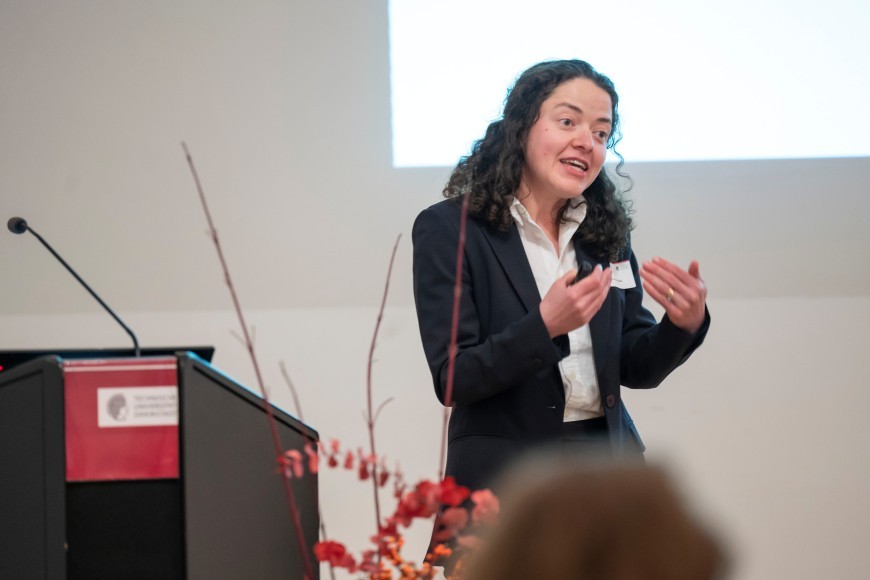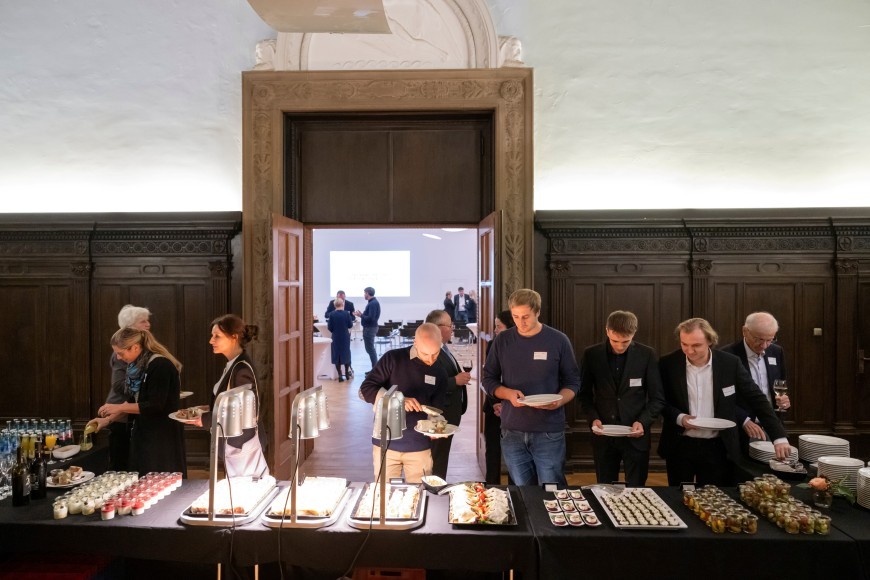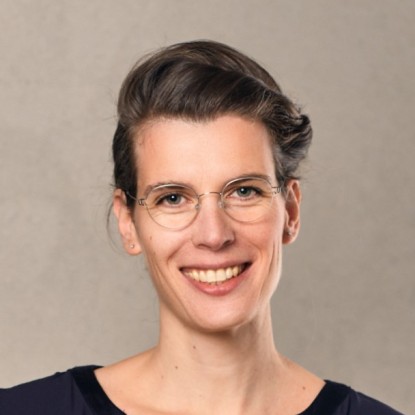Networked quantum computing
Prof Mariami Gachechiladze receives Dr Hans Messer Foundation Prize
2024/11/11 by Gachechiladze/Bettina Bastian
Professor Mariami Gachechiladze, head of the Quantum Computing Group at the Department of Computer Science at Darmstadt Technical University, is this year's recipient of the Dr Hans Messer Foundation Prize from the Hans and Ria Messer Foundation. Her research focuses on the so-called quantum internet – a network of quantum computers that could soon surpass the computing power of conventional supercomputers, particularly in the field of quantum chemistry. The prize is worth 50,000 euros.
Trying to solve difficult computing problems efficiently is a long-standing endeavour. Computers with increasingly powerful computing capabilities are being developed every year. New types of quantum computers use quantum mechanics as their operating system. These systems promise to revolutionise many computational problems that are important for society and industry, but are too complex even for today's best supercomputers. Such problems include the simulation of chemical bonds, the discovery of new drugs, or the efficient solution of some NP problems, a complexity class of mathematical decision problems.
Researchers in physics, mathematics, computer science, chemistry and engineering are working to develop the most powerful quantum computers. However, none of these devices has yet outperformed classical computers in practical applications. For example, quantum computers have a theoretical advantage in breaking large numbers for encryption, but in practice would require millions of contiguously controlled physical qubits (the smallest possible piece of information) and their manipulation – a scale far beyond today's quantum computing technology.
Nevertheless, in recent years, famous proof-of-concept experiments have shown a quantum advantage over the best classical supercomputers, but only for tasks without practical application. This raises the question: Can today's quantum devices outperform classical supercomputers at a meaningful task? Currently, quantum chemistry is considered by the quantum computing community to be one of the most promising areas in which quantum computers could outperform classical computers in the coming years.
To achieve this, both the theory of quantum computing and the quantum devices need to be improved. One way to build a scalable and robust quantum computer is to shift the focus from a single quantum device to a collection of quantum devices interacting coherently through a quantum network – also known as a quantum internet. Quantum networks are seen as the most promising resource for scaling quantum computing, with many small, high-precision quantum computers linked together to achieve a quantum advantage. Despite all the experimental developments, there is still a lack of theoretical background on how and for what tasks the distributed quantum computing platform can be used.
This is where the research of Professor Mariami Gachechiladze from the Department of Computer Science at TU Darmstadt comes in: On the one hand, we are advancing the applications of quantum chemistry using quantum computation, and on the other hand, we are exploring the novelties and limits when quantum information processing is performed in a quantum network instead of on a single device," explains Gachechiladze. Until now, these two areas have been considered independently of each other, as they require completely different skills and training to address their respective challenges.
About the prize
The Dr Hans Messer Foundation Prize is awarded annually by the Hans and Ria Messer Foundation (Dr Hans Messer Foundation until 2024) to promote research and teaching by scientists in the early stages of their careers with outstanding achievements in the natural sciences, engineering, economics, social sciences and the humanities.
The Hans and Ria Messer Foundation promotes education and training as well as science and research throughout Germany. The foundation was established by Dr Hans Messer in 1978 and has been recognised as a charitable foundation since 1979. The Foundation Prize was also introduced at the Technical University of Darmstadt under the chairmanship of Dr Hans Messer. The Foundation promotes research projects, supports scientific and educational institutions and regularly awards scholarships for education and research. The Foundation has been awarding its prize regularly at the TU Darmstadt since 1994 and it is currently the highest endowed prize for young researchers at the TU Darmstadt.







